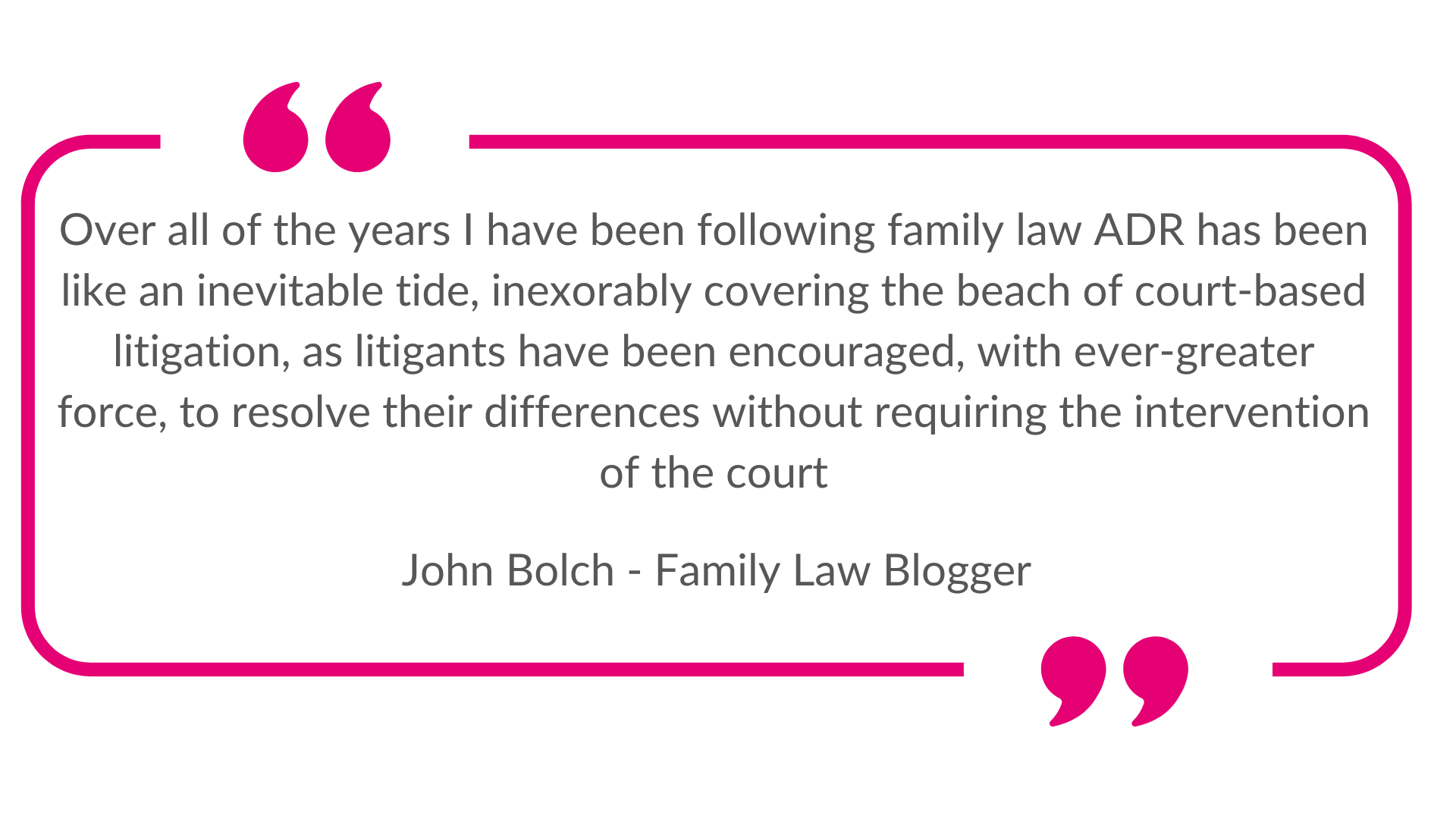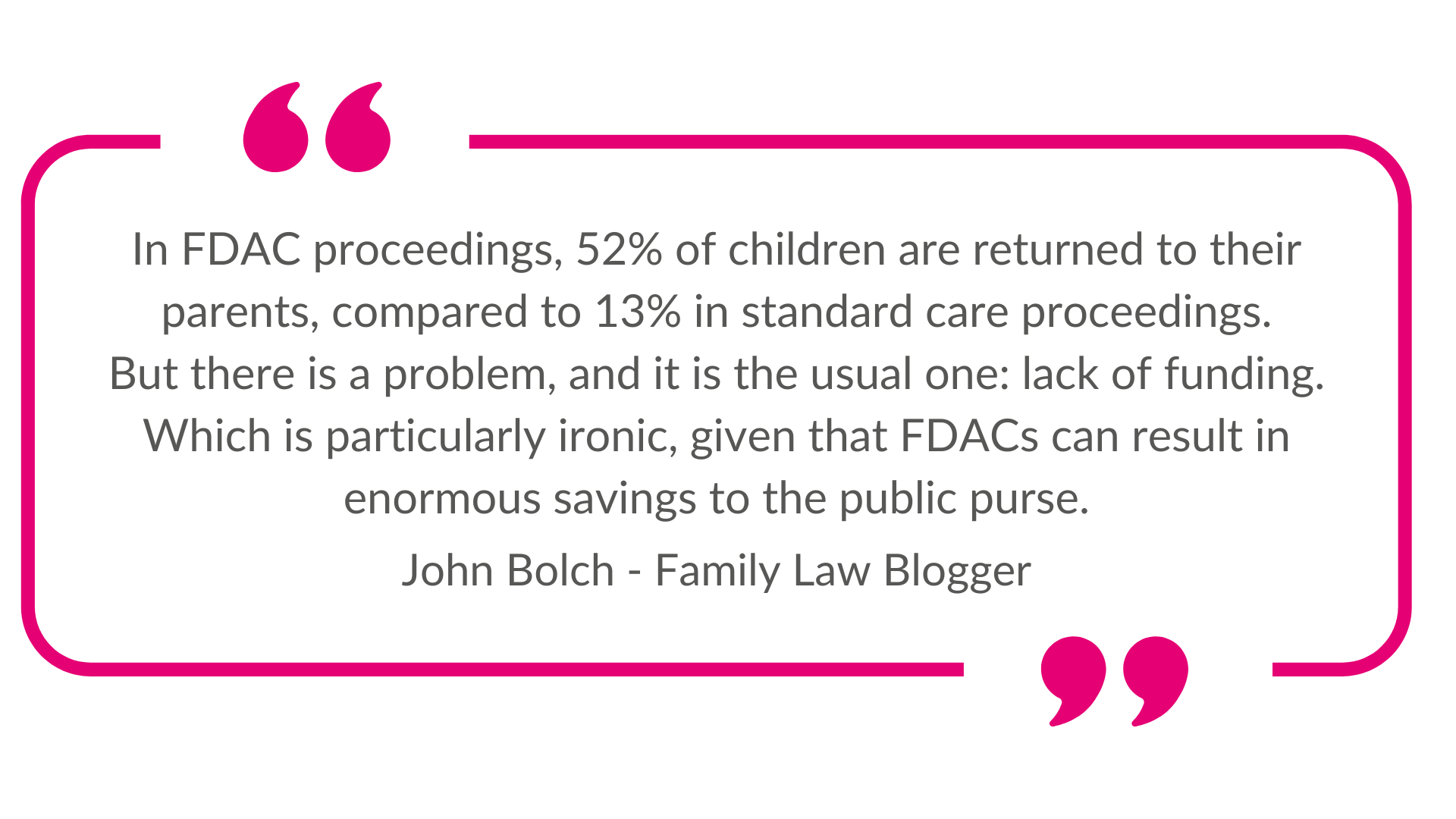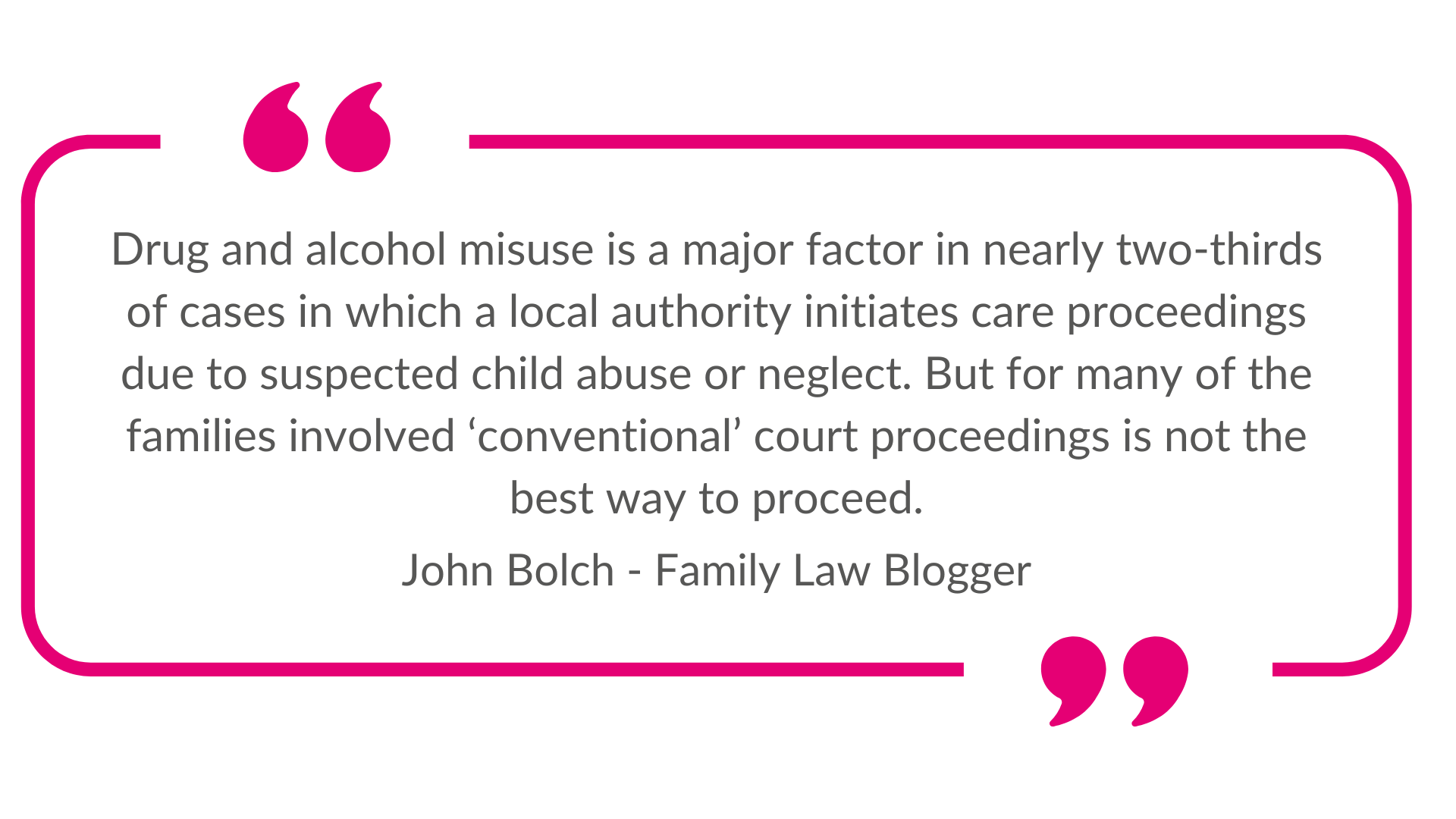In a new exclusive post for 2025, Family Law Blogger John Bolch consults his crystal ball to look ahead and see what might be happening in the coming months. Read on to find out more…
In the time-honoured tradition I thought I would begin 2025 with a look at what the new year might have in store for us, specifically by way of changes in the field of family law.
What follows are just a very few thoughts of my own, some based upon real likelihood of happening, and some on no more than wishful thinking.
Pathfinder extension
I will begin with a change that has a good chance of happening in 2025.
‘Pathfinder’ courts are a new development that utilise a child-led approach to dealing with cases involving disputes between parents over arrangements for their children.
Like FDAC (see below), Pathfinder is a ‘problem-solving court’, which seeks to engage with the parents in resolving their dispute.
One of the most significant aspects of Pathfinder is that before the first hearing CAFCASS will have spoken to the parents and to the children, before compiling a ‘Child Impact Report’ describing the dispute and the children’s wishes and feelings. The report is designed to encourage the parents to look at the impact of what they are doing upon their child, and consider what needs to be done to resolve that.
Pathfinder was initially piloted in courts in North Wales and Dorset, and last year the pilot was extended to courts in Birmingham and Cardiff.
Looking at the results
The Pathfinder pilots have been very successful, with most cases being resolved at the first hearing. What is more, fewer cases return to court for enforcement or other reasons, because both parents have been engaged, by the court in resolving their dispute.
The President of the Family Division, who describes Pathfinder as “an altogether much more satisfactory method of resolving parental disputes”, has recently spoken about rolling out Pathfinder to other court areas, and hopefully that will happen in 2025.

More ADR
Over all of the years I have been following family law ADR has been like an inevitable tide, inexorably covering the beach of court-based litigation, as litigants have been encouraged, with ever-greater force, to resolve their differences without requiring the intervention of the court.
It began (at least to my knowledge) way back in the late 80s (or was it the early 90s?) when the Principal Registry (or was it still then the Divorce Registry?) began listing children disputes for initial ‘conciliation appointment’ hearings, at which a court welfare officer would discuss the case with the parents, to explore whether the matter could be resolved by agreement.
Major Milestone
And in April 2024 we saw it pass a major milestone when the Family Procedure Rules were amended to provide the court with new tools to further encourage non-court dispute resolution. Those tools include requiring the parties to file a form setting out their views on using non-court dispute resolution as a means of resolving the matter and, in financial remedy proceedings, giving the court power to make an order for costs against one of the parties if that party failed without good reason to attend non-court dispute resolution.
I haven’t seen any feedback as to the impact of those rule changes, but we should get the first indications this year. And if they really do lead to a significant increase in the number of cases being resolved out of court then that will surely encourage more judges to open their shiny new toolbox in 2025.
Financial remedies reform
OK, so this one will almost certainly not happen in 2025. But it will no doubt be heavily discussed, and by the end of the year we may have an indication of which way the wind is blowing.
In December the Law Commission published a‘scoping report’ on the law governing finances on divorce. The Commission concluded that the law needs to be reformed, and presented the Government with four models that reform could take, ranging from codifying the current case law (thereby retaining the same wide judicial discretion we have at present), to introducing default rules to determine the division of assets (thereby leaving the court with very little discretion).
And so to 2025…
To be honest I’m not sure which model I would prefer, but I do think it’s long past time that we had a proper discussion about possible reform of the current system, which as we all know can be very uncertain.
The Government has agreed to respond to the report as soon as possible, and in any event provide an interim response within six months of publication of the scoping report, and a full response within a year. So by the end of 2025 we should at least know whether reform is likely.

More FDACs
Drug and alcohol misuse is a major factor in nearly two-thirds of cases in which a local authority initiates care proceedings due to suspected child abuse or neglect. But for many of the families involved ‘conventional’ court proceedings is not the best way to proceed.
What those families need is help, rather than the strong arm of the law. And with appropriate help many of those families can resolve their problems and remain together, or be reunited.
With this in mind Family Drug and Alcohol (‘FDAC’) courts were first piloted back in 2008. FDACs are specialist courts which aim to help parents stabilise/stop using drugs/alcohol and, where possible, keep families together.
And there is strong evidence that FDACs are successful in that aim. In FDAC proceedings, 52% of children are returned to their parents, compared to 13% in standard care proceedings.
There may be trouble ahead…
But there is a problem, and it is the usual one: lack of funding. Which is particularly ironic, given that FDACs can result in enormous savings to the public purse.
There are currently 13 specialist FDAC teams, working in 19 courts and serving families in 35 local authorities (there are 339 local authorities in England and Wales). Which obviously means that most families facing the prospect of care proceedings do not have access to a FDAC.
Just recently Lord Justice Peter Jackson called for FDACs to be expanded, and I can only echo what he said.

A ‘no-brainer’ …
It is surely a tragedy every time a family is torn apart when it might have been possible for it to have been kept together, if only the parents had lived in an area served by a FDAC. It really is a no-brainer to expand coverage of FDACs to the whole of England and Wales, and the fact that that has not long since happened is a stain upon the reputation of successive governments who have failed to provide the required resources.
Let us just hope that the current government is sufficiently enlightened to make universal FDACs a reality (although with all honesty I will not be holding my breath for that to happen in 2025). And with that I wish readers, particularly those who will come into contact with the family justice system in 2025, a happy New Year.
Cansford Labs
This blog is written exclusively for our legal supplier Cansford Labs by John Bolch, we thank Cansford for their continued support of Chronicle Law and for sharing this article with us to serve our family law based audience.
If you want to find out more about Cansford Labs click here and you can read more of John Bolch’s exclusive blogs here.
 John Bolch
John Bolch